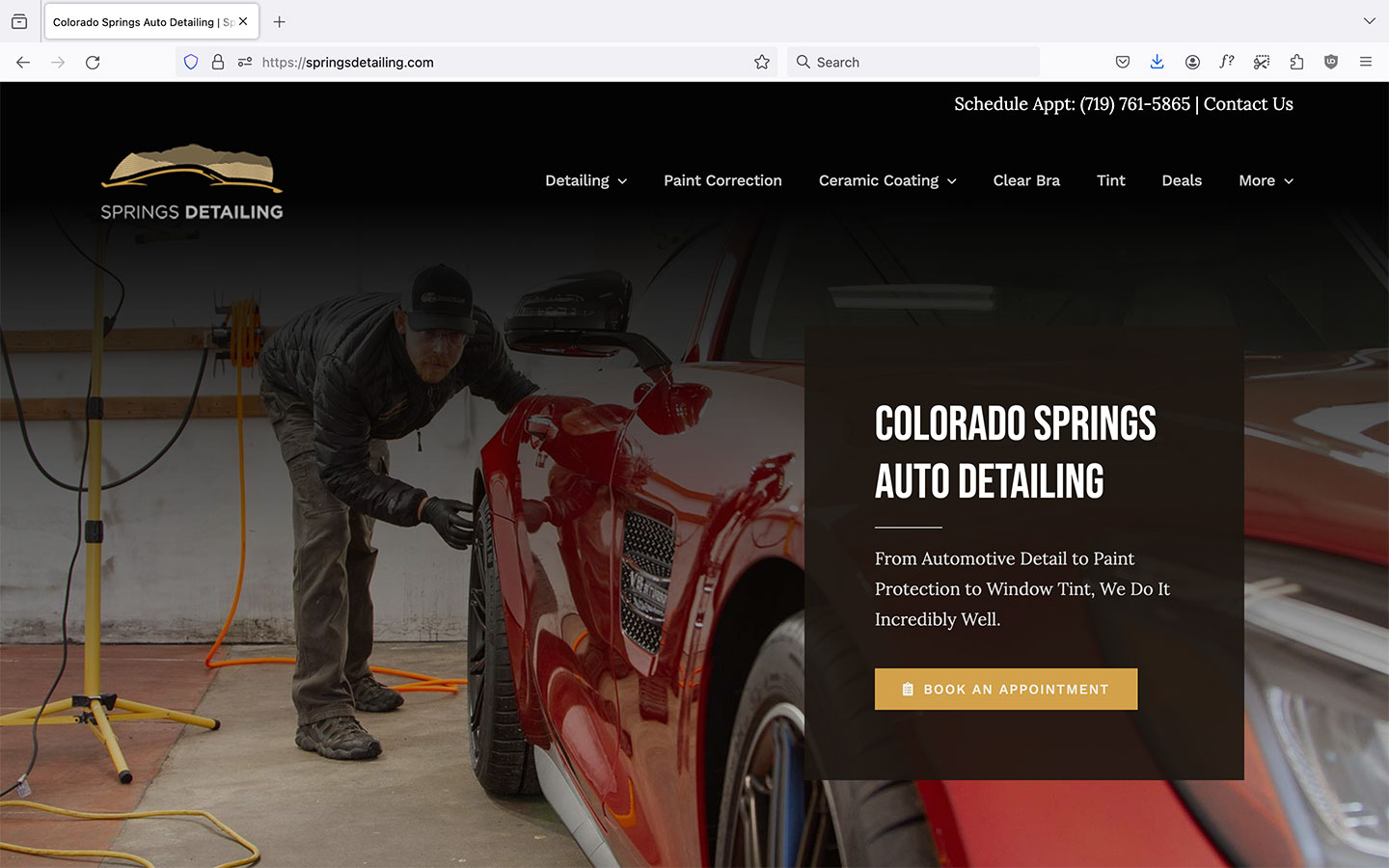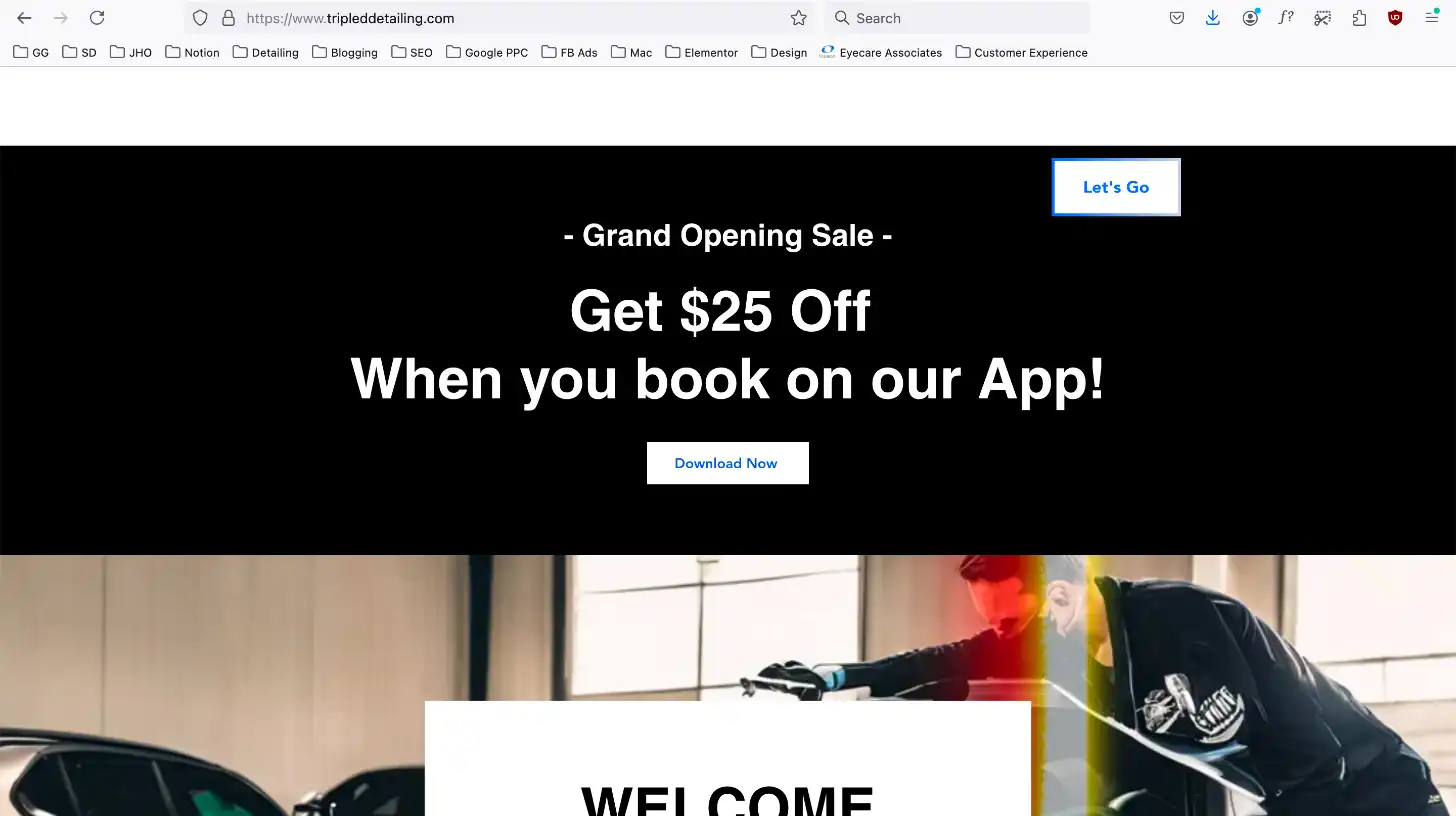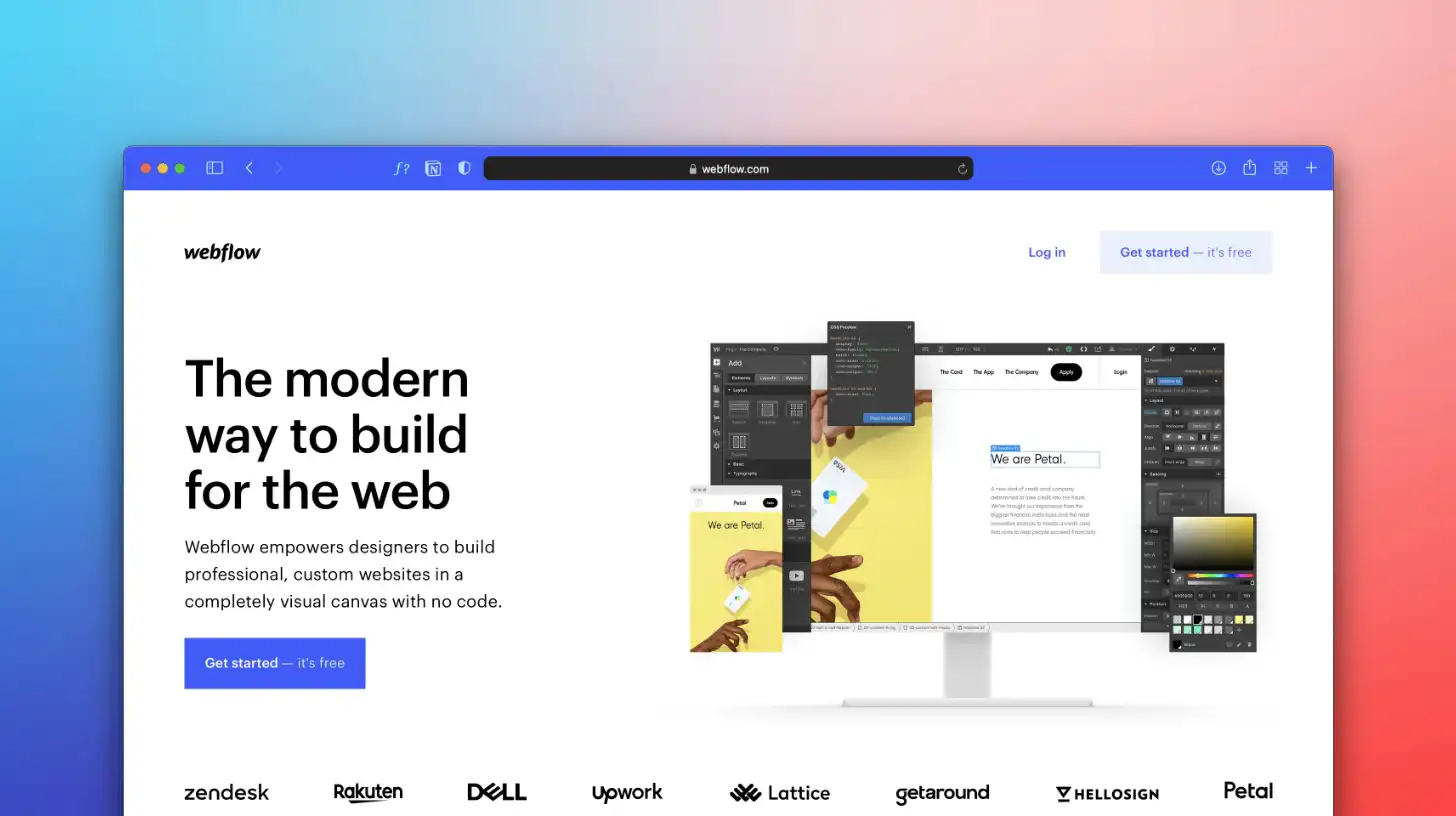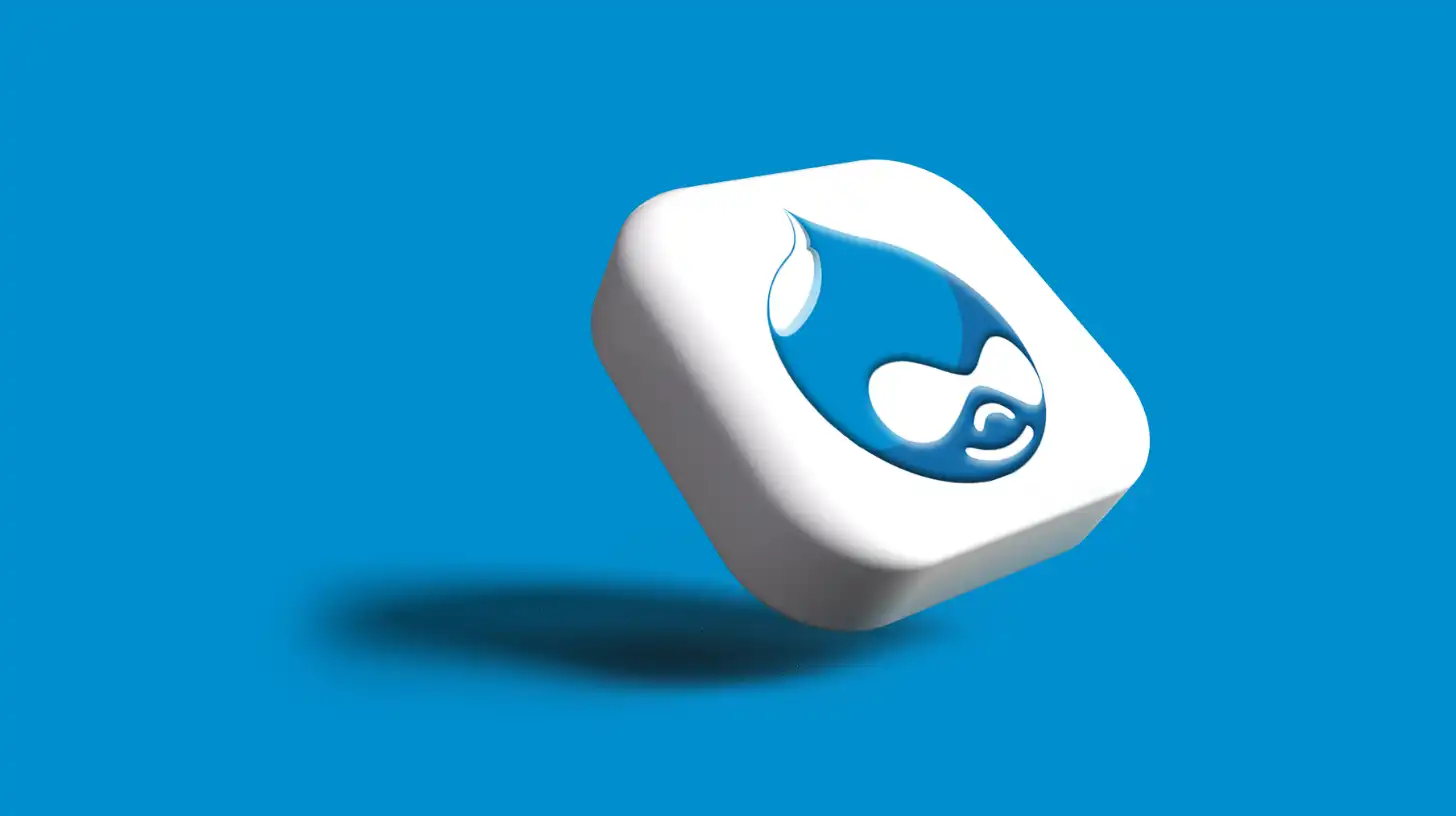Choosing the best content management system (CMS) can make or break your auto detailing business website. This guide examines seven CMS platforms, with special attention to features that matter most to detailing professionals: Search Engine Optimization (SEO), appointment scheduling, before/after galleries, and service pricing displays. Whether you’re starting fresh or considering a website overhaul, this comprehensive comparison will help you make an informed decision for your business.
Key Takeaways
- WordPress leads the pack for auto detailing businesses due to its flexibility and extensive plugin ecosystem
- Wix and Squarespace excel for DIY website builders who need quick deployment
- Webflow and Framer offer modern design capabilities for unique branding
- Drupal and Joomla suit larger operations with specific security needs
- Your choice should balance SEO, ease of use, cost, and scalability
- Mobile responsiveness and booking capabilities are crucial factors
Table of Contents
- Introduction
- What is a Content Management System?
- Why Your CMS Choice Matters
- WordPress: The Industry Standard
- Wix: Drag-and-Drop Simplicity
- Squarespace: Design Excellence
- Webflow: Custom Design Power
- Framer: Modern Alternative
- Drupal: Enterprise-Grade Security
- Joomla: Feature-Rich Option
- Comparison Table
- Conclusion
- Frequently Asked Questions
- Additional Resources
Introduction

Running an auto detailing business requires a professional online presence that showcases your work and converts visitors into customers. Your website needs to handle appointment bookings, display service packages, and showcase your transformation photos. The right CMS platform will make these tasks simple while helping you grow your business.
What is a Content Management System?
A Content Management System (CMS) is like a digital control center for your website. Think of it as the engine behind your website’s hood – it’s the software that lets you create, edit, and manage all your online content without needing to know complex programming languages. Just as you have specialized tools in your detailing bay that make your work efficient, a CMS provides the tools you need to manage your online presence effectively.
With a good CMS, you can easily update your service packages, post before-and-after photos of your latest detailing work, manage customer appointments, and modify your website’s content – all through a user-friendly dashboard. Instead of calling a web developer every time you want to update your pricing or add new service photos, you can make these changes yourself, often in just a few clicks. This independence not only saves you money but also helps you keep your website fresh and current, which is essential for attracting and retaining customers in the competitive auto detailing market.
Why Your CMS Choice Matters
Your content management system serves as the foundation of your online presence. For auto detailing businesses, the right CMS should offer:
- Easy photo gallery management
- Booking system integration
- Mobile responsiveness
- Simple pricing table updates
- Customer review integration
- Social media connectivity
- SEO capabilities
- Security features
- Payment processing options
WordPress: The Industry Standard

WordPress powers over 43% of all websites, and for good reason. Its flexibility and extensive plugin ecosystem make it particularly valuable for auto detailing businesses.
Core Features:
- Visual page builders (Bricks, Elementor, Breakdance)
- Booking plugins (BookingPress, Amelia, WooCommerce Bookings)
- Gallery management (NextGen Gallery, Envira Gallery)
- SEO tools (Rank Math, Yoast SEO)
- Security plugins (Wordfence, Sucuri)
- Performance optimization (LiteSpeed Cache, WP Fastest Cache)
Pros:
- Massive plugin library (60,000+)
- Excellent booking plugins
- SEO-friendly structure
- Extensive theme options
- Large developer community
- Cost-effective hosting options
- Regular security updates
- Easy content updates
- Strong e-commerce capabilities
- Scalable platform
Cons:
- Requires regular maintenance
- Security depends on proper setup
- Can be slow if not optimized or if hosted on slow servers
- Learning curve for beginners
- Plugin conflicts possible
- Quality varies among themes
Pricing:
- Core Software: Free
- Hosting: $5-30/month
- Premium Themes: $30-100 one-time or yearly depending on theme
- Essential Plugins: $100-300/year
- Professional Setup: $2000-5000 and up
“WordPress gives us the flexibility to add any feature our auto detailing clients need, from appointment scheduling to payment processing.” – Justin House, Web Developer at Grounded Group
Read More: WordPress for Auto Detailing Businesses
Wix: Drag-and-Drop Simplicity

Wix offers an intuitive website builder that’s popular among small business owners who want to handle their own website management. While it’s simple to use, doing it yourself may lead to less than desirable results (e.g. see image above).
Core Features:
- Built-in appointment scheduler
- Professional templates
- App market integrations
- Automated marketing tools
- Mobile editor
- SEO tools
- SSL security
- Custom domains
Pros:
- True drag-and-drop interface
- Built-in booking system
- Mobile-optimized templates
- All-in-one hosting solution
- 24/7 customer support
- Regular platform updates
- Integrated analytics
- Email marketing tools
- Social media integration
- Quick setup time
Cons:
- Limited customization options
- Higher monthly costs
- Can’t transfer to other platforms
- Limited SEO control
- Storage limitations
- Traffic restrictions
- No direct database access
- Limited backup options
Pricing:
- Light: $17/month
- Core: $29/month
- Basic Business: $36/month
- Business Elite: $159/month
- Enterprise: Custom pricing
Read More: WordPress vs Wix for Auto Detailing Businesses
Squarespace: Design Excellence
Squarespace stands out for its polished, professional templates and integrated commerce features.
Core Features:
- Professional templates
- Image management
- Scheduling tools
- Marketing suite
- Analytics dashboard
- Commerce tools
- Blog functionality
- Mobile editing
Pros:
- Beautiful, modern templates
- Built-in image optimization
- Mobile-responsive designs
- Integrated e-commerce
- Professional booking tools
- Quality customer support
- Regular platform updates
- Social media integration
- Built-in marketing tools
- SSL security included
Cons:
- Fewer third-party integrations
- Higher pricing than alternatives
- Limited customization options
- Steeper learning curve than Wix
- No plugin system
- Limited export options
- Restricted development access
- Fixed template structure
Pricing:
- Basic: $25/month
- Core: $36/month
- Plus: $56/month
- Advanced: $139/month
Webflow: Custom Design Power

Webflow combines visual editing with custom code capabilities, offering unique possibilities for auto detailing websites.
Core Features:
- Visual CSS controls
- CMS collections
- Custom animations
- Responsive design tools
- E-commerce capabilities
- Advanced interactions
- Database management
- Custom code integration
Pros:
- Advanced design capabilities
- Clean, efficient code output
- CMS collections for service packages
- Strong animation features
- Professional hosting
- Full design control
- Direct code access
- Excellent performance
- Custom CMS structures
- Advanced interactions
Cons:
- Subscription based (i.e. it’s a rental)
- Significant learning curve
- Higher pricing
- Complex for non-designers
- Limited plugin options
- Fewer integrations
- Technical knowledge needed
- Small marketplace
- Limited third-party support
Pricing:
- Basic: $18/month
- CMS: $29/month
- Business: $49/month
- Enterprise: Custom pricing
Read More: WordPress vs Webflow
Framer: Modern Alternative
Framer represents the next generation of website builders, with a focus on modern design and interactions.
Core Features:
- Component-based design
- Smart components
- Real-time collaboration
- Responsive layouts
- Custom interactions
- API integrations
- Version control
- Design system tools
Pros:
- Modern component system
- Fast loading speeds
- Easy prototyping
- Real-time collaboration
- Clean code output
- Quick iterations
- Design consistency
- Advanced animations
- Smart layouts
- Version history
Cons:
- Subscription based
- Limited business-specific features
- Newer platform, fewer resources
- Higher monthly costs
- Small marketplace
- Learning curve
- Limited integrations
- Few templates
- Less community support
Pricing:
- Basic: $20/month
- Pro: $40/month
- Enterprise: Custom pricing
Drupal: Enterprise-Grade Security

Drupal offers robust security features and advanced customization options.
Core Features:
- Advanced security
- Content workflows
- Multi-site management
- Custom content types
- Role-based access
- API support
- Multilingual tools
- Version control
Pros:
- Enterprise-level security
- Advanced user permissions
- Excellent for large sites
- Strong multilingual support
- Free open-source software
- Scalability
- Performance
- Content flexibility
- API-first architecture
- Robust caching
Cons:
- Steep technical learning curve
- Higher development costs
- Fewer auto industry-specific themes
- Complex updates
- Developer dependency
- Limited hosting options
- Expensive maintenance
- Complex administration
- Minimal Drupal designers and developers in the market
Pricing:
- Core Software: Free
- Hosting: $10-100/month
- Development: $5000-50000
- Maintenance: $500-2000/month
Joomla: Feature-Rich Option

Joomla balances functionality with ease of use, offering a middle ground between WordPress and Drupal. It’s worth noting though, I initially started with Joomla back in 2005, but found it to be very user unfriendly, especially for the client.
Core Features:
- Content management
- Extension system
- Template framework
- Multi-language support
- Access control
- Media manager
- Menu management
- Update management
Pros:
- Built-in multilingual support
- Strong access control
- Active community
- Free core software
- Flexible template system
- Content versioning
- Category management
- Built-in search
- Custom fields
- Article scheduling
Cons:
- Smaller extension marketplace
- Moderate learning curve
- Fewer auto detailing specific themes
- Less intuitive admin interface
- Limited plugins
- Complex updates
- Smaller community
- Technical setup required
Pricing:
- Core Software: Free
- Hosting: $5-50/month
- Templates: $30-100
- Extensions: $0-200/year
- Development: $2000-20000
Conclusion

After thoroughly analyzing seven leading CMS platforms, WordPress emerges as the top choice for most auto detailing businesses. Its combination of flexibility, cost-effectiveness, and extensive plugin ecosystem makes it particularly well-suited for the industry’s needs. However, each platform has its merits: Wix and Squarespace excel for DIY users, Webflow and Framer cater to design-focused businesses, while Drupal and Joomla serve enterprises with specific security requirements.
Your final choice should align with your technical expertise, budget, and business goals. Consider factors like:
- Available time for website management
- Technical knowledge or access to developers
- Monthly budget for hosting and maintenance
- Required features for your business
- Growth plans and scalability needs
Frequently Asked Questions
Which CMS is best for a small auto detailing business?
WordPress typically offers the best balance of features, cost, and ease of use for small auto detailing businesses. Its extensive and ever growing plugin library allows you to add booking systems, galleries, and payment processing without breaking the bank.
How much should I expect to spend on my website CMS?
Monthly costs vary widely: free for open-source platforms like WordPress (hosting costs apply), $20-50/month for Wix or Squarespace, and $50-200+/month for Webflow or enterprise solutions. Factor in additional costs for plugins, themes, and maintenance.
Can I build my auto detailing website myself?
Yes, platforms like Wix and Squarespace are designed for DIY website creation. However, for professional results that drive business growth, consider working with a specialized agency familiar with auto detailing websites.
How important is mobile responsiveness for my detailing website?
Extremely important. Over 60% of potential customers will view your site on mobile devices. All CMS platforms mentioned here offer mobile-responsive designs, but some handle it better than others.
What features should my auto detailing website include?
Essential features include an online booking system, before/after gallery, service package pricing, customer reviews, and contact information. Most importantly though is that your website should be SEO friendly. Your CMS should support these features either natively or through plugins.
How often should I update my website content?
Regular updates are crucial for SEO and customer engagement. Plan to update your gallery monthly, services and pricing as needed, and add fresh content like tips or news at least once or twice monthly.
Additional Resources
- WordPress for Auto Detailing Businesses
- Industry-Specific Tools
- Learning Resources
- Professional Support







